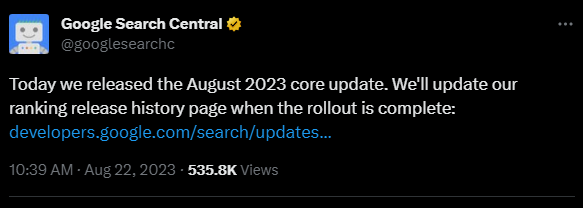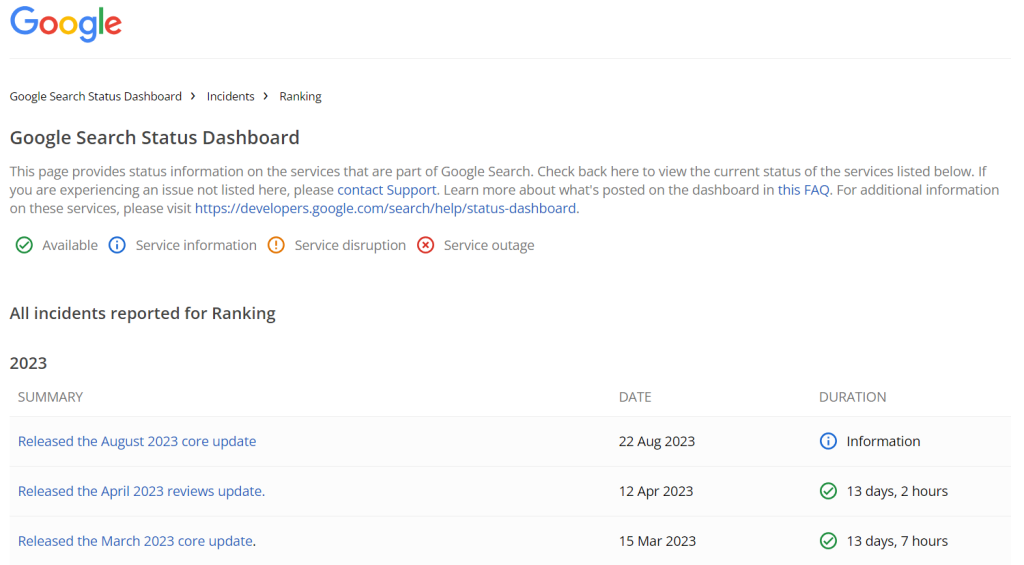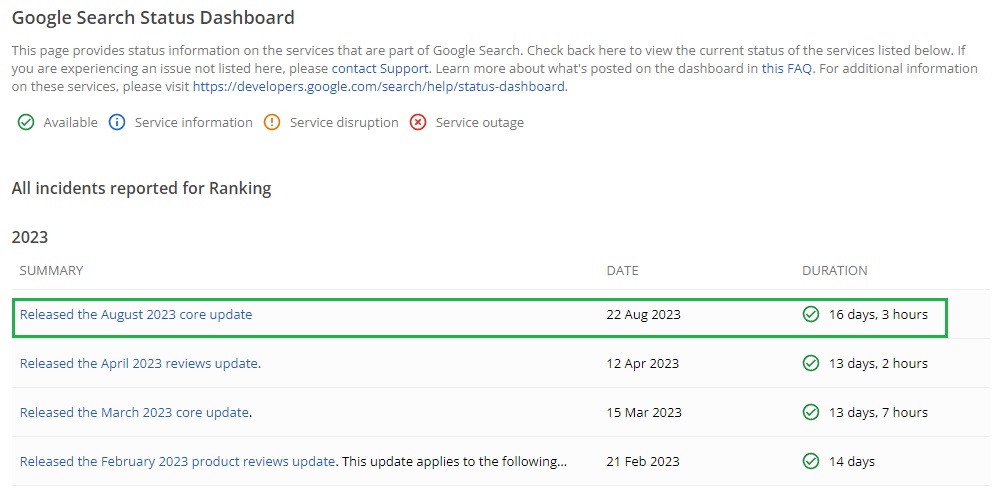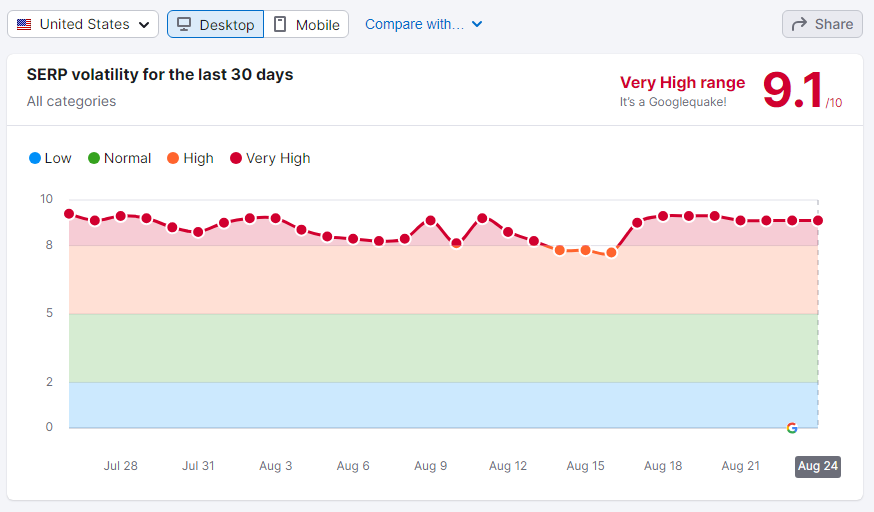Google unveiled its August 2023 core search update on August 22 at approximately 1:30 p.m. ET. This core update is expected to last up to two weeks. Some of the key highlights are that this update reviews all content types, prioritizes high-quality web pages, and affects all regions in every language. This is Google’s second core update for 2023 and is now underway, following the March 2023 core update that began on March 15 and concluded on March 28. It has been nearly half a year since the last significant Google refresh.

Google’s August 2023 core update is now live, targeting enhanced search outcomes. If you see a decline in website and page performance after the update, it doesn’t signify a problem. It may be centered around content relevance. There’s no assured recovery from a core update, and consistent content refinement remains essential to recover from a drop in organic search rankings and traffic.
Google Ranking Drops During a Core Update
A drop in organic search rankings and traffic during a Google Core update can be unsettling, but it’s essential to approach the situation methodically. Here are steps you should consider if you experience a decline:
- Don’t Panic – Fluctuations in rankings and traffic are common during Google core updates. It’s essential to avoid hasty decisions and give the algorithm time to settle. Sometimes, even a few weeks, to observe the full impact of the update.
- Analyze the Data – Delve deep into your analytics data. Understand which keywords and pages were affected the most, and identify any patterns concerning content type, subject matter, or user engagement.
- Read Google’s Guidelines – Familiarize yourself with Google’s Search Quality Rater Guidelines Overview, and the Full Google Search Quality Rater Guidelines PDF document. They provide insights into what Google considers high-quality content.
- Audit Your Content – Review the affected content against Google’s guidelines. Ensure your content is original, authoritative, and offers value to the reader. Update outdated content, and consider merging or removing low-quality pages.
- Check Technical SEO – Ensure there are no technical issues on your site. This includes mobile-friendliness, site speed, SSL certificates, crawl errors, and broken links.
- Enhance User Experience (UX) – Ensure that your site is user-friendly. This includes fast load times and mobile optimization, intuitive navigation, and a secure browsing experience.
- Backlinks Audit – Review your backlink profile to ensure you don’t have an abundance of low-quality or spammy links pointing to your site. Disavow any toxic links. Most likely, this isn’t an issue unless link purchasing was done to manipulate Google’s algorithm.
- Engage in Communities – Participate in SEO forums and communities. Sometimes, shared experiences can offer insights or solutions that you might not have considered.
- Diversify Traffic Sources – While organic search is a significant traffic driver, consider diversifying your traffic sources. Engage in Paid Search (PPC), social media marketing, videos, podcasts, email marketing, and other channels to reduce reliance on organic search.
- Stay Updated – Continuously monitor official communications from Google about the update. They sometimes provide hints or guidelines on what the update is targeting.
- Seek Expert Opinion – Consider hiring an SEO expert or agency to review your site. They might offer a fresh perspective and identify areas of improvement that you might have overlooked.
- Continue to Produce Quality Content – Despite the setbacks, continue creating high-quality content. Over time, good content is likely to rank well, even if it takes a while to recover.
Keep in mind, Google’s objective with core updates is to enhance the accuracy and excellence of search outcomes for its users. Aligning your website with this objective and adhering to best practices will position you well in the long term, even if short-term fluctuations occur.
Previous Google Core Updates

Here is a recap of the past Google Core Updates with a chronological overview of the latest ones. Google also has a Google Search Status Dashboard that you can check out and view all of the update incidents reported for ranking and it offers updates on the status of services incorporated within Google Search.
- 2023 March Google Core Update
- 2022 September Google Core Update
- 2022 May Google Core Update
- 2021 November Core Update
- 2021 July Google Core Update
- 2021 June Google Core Update
- 2020 December Core Update
- 2020 May Google Core Update
- 2020 January Google Core Update
- 2019 September Google Core Update
- 2019 June Google Core Update
Google Core Update 2023 August Completed on September 7, 2023
As of September 7, 2023, the Google Core Update August 2023 has been completed and took 16 days to roll out. You can see the completion dates and times on the Google Search Status Dashboard.




